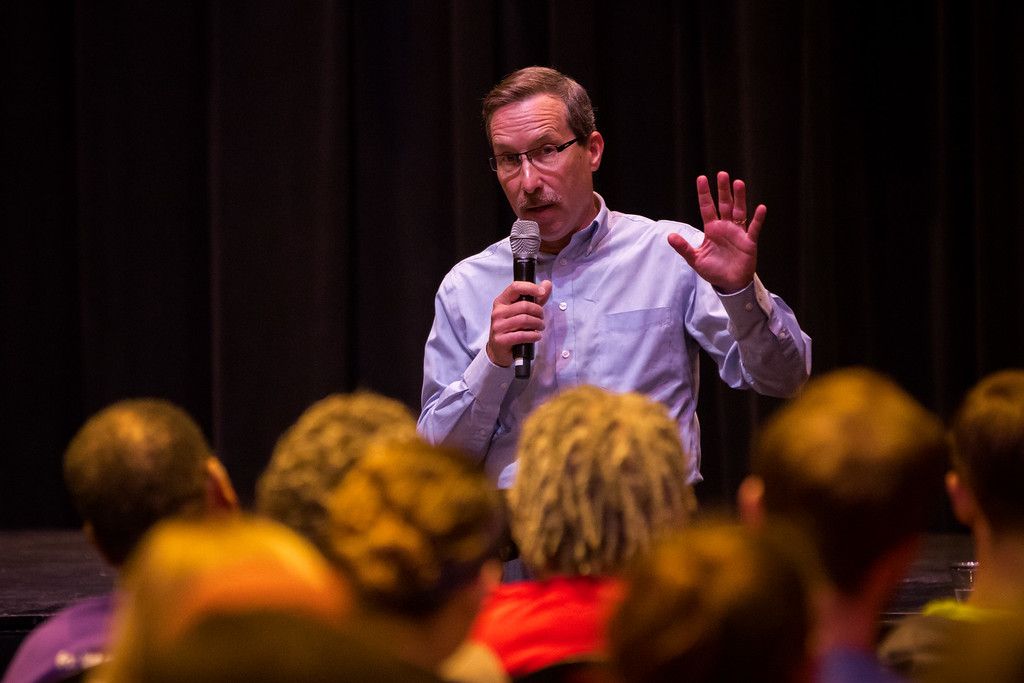by Bruce T. Gourley
Published July 2015
(Baptist Studies Bulletin Archives Index)

In recent months I’ve read several commentaries and been involved in a few dialogues about millennials and science. Christian observers typically, and understandably, approach the topic by analyzing the views of Christian millennials.
According to the most recent Pew Forum research, just over one-half of millennials in America self-identity as Christians, a percentage that continues to decline. Perhaps even more revealing is that only about twenty percent of millennials, according to the conservative Barna Group, view church attendance as important. Much smaller than that is the subset of Christian millennials usually analyzed in commentaries about religion and science: students or recent graduates of Christian universities and seminaries.
There is, however, another subset of millennials whose views are arguably more revealing and of greater importance than those who consider themselves Christians or who are committed to church: the roughly 35% who are religiously uninvolved, a group whose numbers are rapidly rising.
As revealed by Pew Research, there are more millennials outside of religious life than there are evangelical Protestants (20%), Catholics (16%) or mainline Protestants (11%). The non-religious are growing so rapidly, while the religious steadily decline, that in a decade or two they might well outnumber evangelical, Catholic and mainline Protestant millennials combined.
Statistically speaking, the future vitality of Christianity in America lies not among the shrinking subsets of millenials who are Christians, but rather among the rapidly growing and dynamic subset of millennials (and post-millennials) who claim no religious affiliation.
Who are these non-religious millennials? Many are the children and grandchildren of long-churched Christians who gave up on church. A growing number, however, have never been involved in church or religious life otherwise.
Contrary to Christian millennials enrolled in or graduated from Christian institutions, non-religious young persons place their faith in science, not the Bible. And ominously, their trust in science leaves little to no room for religious beliefs.
“Curious and awestruck” is how one analyst describes millennials fascination with science. Bill Nye the Science Guy and astrophysicist Neil deGrasse Tyson are rock stars to America’s millennial generation, having far greater followings than any religious personality.
Historian and economist Neal Howe, whose scholarly works focus on generational shifts and society, sums up the preeminence of science: “What Millennials really like about science is its ability to take an innovation and make the whole world, or community, a better place.”
Leslie Long, associate professor of religion at Oklahoma City University, notes that millennials have been “raised with science as their way to prove things. Whether it be global warming, whether it be how they’ve gone through and mapped the human genes, or whatever it is. They’re a generation that likes to see proof and religion doesn’t always fall equal to that.” Perhaps underlying this shift from religion to science is millennials’ status as the most educated generation in American history, with their report cards showing “much greater improvement in science and math than in reading and writing.”
One recent poll found that 57% of millennials trust scientists, a higher percentage than that of any other societal institution analyzed (this figure is almost three times the percentage of millennials who believe church attendance is important). Whereas non-religious millennials trust science as a way to make the world a better place, some one-third of millennials who turned away from religion cited “negative teachings” and “negative treatment” toward LGBT persons as a major reason for abandoning religion. In effect, they left because religion was making the world a worse place. Perhaps even more revealing, among the growing percentage of young persons who have never been involved in religion, few will likely ever trust religion to make the world a better place.
In short, the decades-long decline of organized religion in American life is paralleled by the maturing of science as the primary public steward of truth and a better force of good in the world than religion. That we are in an unparalleled scientific age is unquestionable, while the prospects of the church regaining its authoritative footing seems remote. Christian millennials and post-millennials will continue incorporating science into their faith, but there will be less and less of them. Meanwhile, the proportion of non-religious, scientifically-focused Americans will increase.
In the face of demographics, if the church is unwilling or unable to set aside traditional dogma and doctrine that can neither withstand scientific scrutiny nor serve as a force of good for humanity, American Christianity as an institution runs the risk of becoming a footnote within a few more generations.
In moderate Baptist life a broader millennial — and scientific — conversation is needed.
The clock is ticking.
